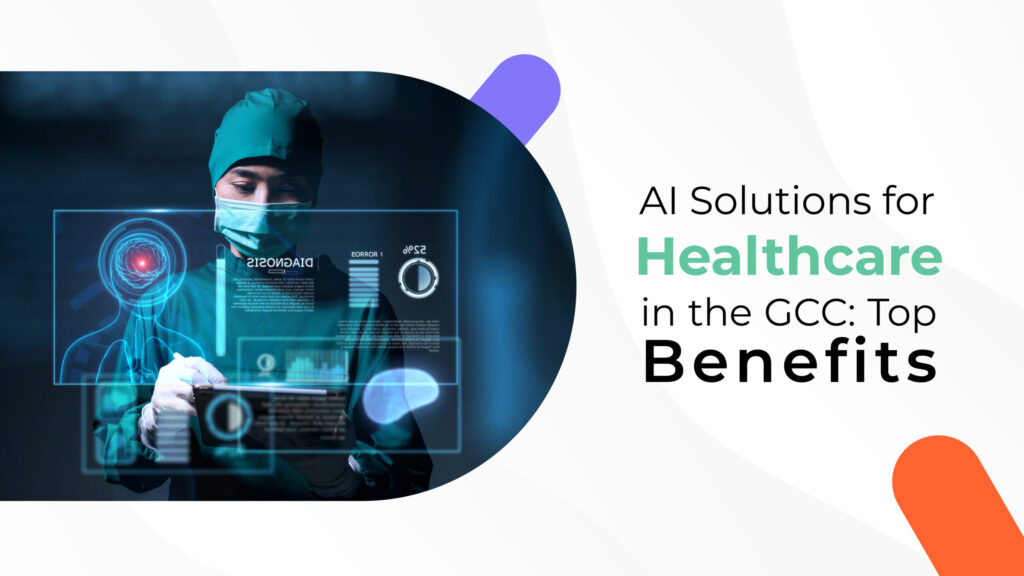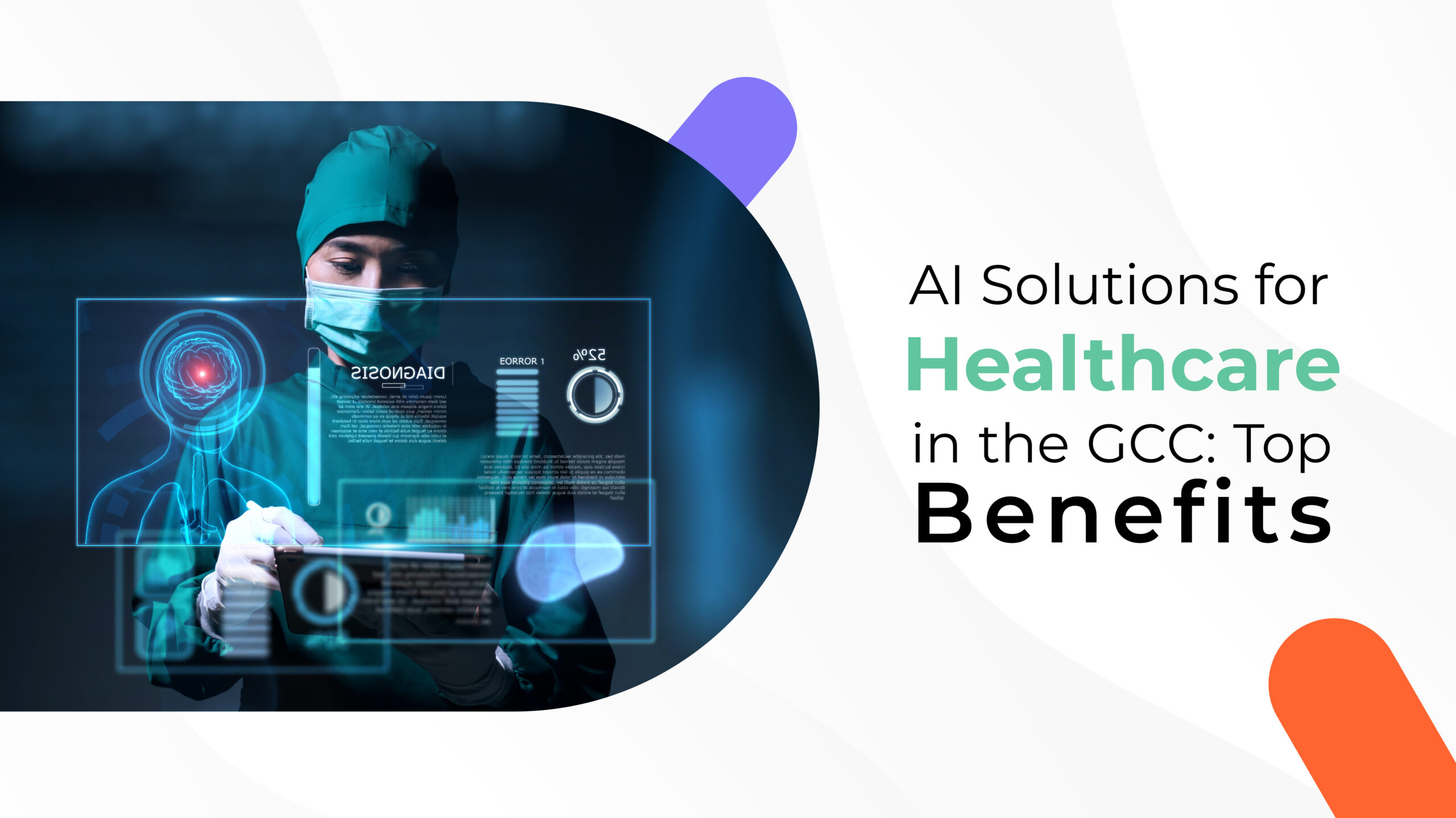Introduction to AI in Mental Health Care

Mental health care has increasingly emerged as a pivotal area of concern globally, affecting millions of individuals regardless of age, background, or socioeconomic status. The World Health Organization (WHO) reports a sharp rise in mental health disorders, prompting the need for innovative, effective, and accessible solutions. Traditional mental health services often face significant challenges, including a shortage of qualified professionals, long waiting times for appointments, and limited availability of care in underserved regions. These challenges create formidable barriers for individuals seeking help, contributing to a growing mental health crisis.
In this context, artificial intelligence (AI) has started to play an essential role in transforming mental health care. AI-driven solutions offer promising avenues to enhance both the accessibility and effectiveness of mental health services. By utilizing algorithms and machine learning techniques, AI can provide personalized care, accurately predict mental health trends, and facilitate immediate support for those in need. Moreover, the integration of AI in mental health can help bridge the gap between demand and supply, as well as improve the efficiency of existing treatment strategies.
The potential of AI in mental health care is further amplified by the rapid advancement of technology and increasing smartphone use, which presents new opportunities for remote therapy and mental health monitoring. Applications and platforms powered by AI can offer real-time assessments and interventions, making mental health care more approachable and effective. Additionally, these technological solutions can relieve some burdens on traditional health systems, allowing professionals to focus on delivering high-quality care while supplementing their efforts with AI tools.
As we delve into the remarkable AI-driven solutions reshaping mental health care, it is crucial to understand the impactful role technology is expected to play in improving patient outcomes and democratizing access to support. This exploration not only highlights the benefits of AI but also addresses the ethical considerations and challenges that come with integrating technology into such a sensitive field.
Understanding AI and Its Application in Mental Health
Artificial Intelligence (AI) refers to the simulation of human intelligence in machines that are designed to think and act like humans. In the realm of mental health care, AI serves to enhance the capabilities of professionals and improve patient outcomes by analyzing vast amounts of data quickly and efficiently. Various types of AI technologies, primarily machine learning and natural language processing (NLP), play a significant role in transforming the mental health landscape.
Machine learning, a subset of AI, involves algorithms that enable computers to learn from data inputs and improve over time without being explicitly programmed. In mental health applications, machine learning models can analyze patient records, identify patterns in symptoms, predict potential crises, and even recommend personalized treatment options. These predictive analytics are invaluable for mental health professionals, as they offer insights into patient behaviors and assist in tailoring interventions that are more likely to be successful.
Natural language processing, another critical aspect of AI, focuses on the interaction between computers and human language. This technology enables machines to understand, interpret, and generate human language in a valuable context. In the field of mental health care, NLP can be used to analyze patient conversations, whether through chatbots or assessments, to discern emotional states, detect distress, or identify therapeutic needs. Furthermore, NLP can streamline administrative tasks, such as transcribing therapy sessions or generating insightful reports on patient progress.
Through these advanced AI technologies, mental health care is poised to become more effective, accessible, and personalized. AI’s ability to process and analyze complex data allows for the identification of trends that may be overlooked by human practitioners. As these tools continue to evolve, they hold the potential to revolutionize mental health treatment by enabling deeper insights and enhancing the therapeutic relationship between mental health professionals and their patients.
AI-Powered Chatbots for Initial Support
The rise of AI-driven technologies has significantly transformed various sectors, including mental health care. Among these advancements, AI-powered chatbots are gaining traction as initial sources of support for individuals facing mental health challenges. These intelligent systems are designed to provide immediate assistance, offering a sense of comfort and anonymity to users who may be hesitant to seek help through traditional channels.
One notable example of an AI-powered chatbot is Woebot, which engages users in a conversational manner to help them navigate feelings of anxiety and depression. Woebot utilizes Cognitive Behavioral Therapy (CBT) principles to deliver evidence-based strategies for coping with mental health issues. Users interact with Woebot through text, allowing for quick and confidential communication. The bot analyzes users’ responses and tailors its feedback accordingly, providing personalized support at any time of day.
The effectiveness of such chatbots has garnered attention in mental health research. Studies indicate that many individuals find comfort in chatting with AI during moments of distress, appreciating the non-judgmental space these bots provide. They serve as an initial point of contact, helping to destigmatize mental health conversations and encouraging users to seek professional help when necessary. Furthermore, the accessibility of chatbots like Woebot breaks down barriers for those who may not have immediate access to mental health care resources.
Additionally, these chatbots maintain users’ privacy, which is a critical feature for many seeking mental health support. The anonymity offered by digital platforms allows individuals to express their feelings without fear of being judged. As technology continues to evolve, the integration of AI-driven chatbots in mental health care may revolutionize how individuals manage their mental well-being, ensuring that support is only a text away.
Predictive Analytics for Early Intervention
Predictive analytics has emerged as a transformative tool in mental health care, employing artificial intelligence to sift through extensive datasets that include various patient indicators. By analyzing patterns and trends in this data, AI can effectively identify individuals at the highest risk of experiencing mental health crises. This proactive approach enables healthcare providers to initiate early interventions tailored to the unique needs of their patients, thereby mitigating potential crises before they escalate.
Numerous platforms are currently utilizing predictive modeling to facilitate this early detection. For instance, some health systems are employing algorithms that analyze electronic health records, social determinants of health, and behavioral data to flag patients who may be susceptible to conditions such as depression, anxiety, and suicidal ideation. The integration of these predictive analytics tools signifies a significant shift from traditional reactive models of mental health care to a more anticipatory framework. Healthcare professionals can leverage these insights to intervene earlier, allowing for timely therapeutic engagement and improved patient outcomes.
Moreover, the capacity for real-time data analysis means that healthcare providers can continuously monitor patients’ mental health status, adjusting treatment plans as necessary based on evolving data insights. This ability to respond promptly to changes in patient behavior or symptoms not only enhances care delivery but also fosters a supportive environment where patients feel their needs are consistently addressed. While the implementation of predictive analytics in mental health care is still developing, the potential for improving early detection and intervention remains promising and highlights the critical role that AI-driven solutions can play in shaping the future of mental health care.
Virtual Reality-Based Therapies
The integration of artificial intelligence (AI) with virtual reality (VR) is rapidly transforming mental health care, particularly in therapeutic environments. Virtual reality-based therapies present unique opportunities to enhance traditional therapeutic methods, especially for individuals suffering from various conditions such as post-traumatic stress disorder (PTSD). Programs like Limbix exemplify this innovation by providing immersive experiences that facilitate exposure therapy, which is a critical component in treating PTSD. Exposure therapy typically involves helping individuals confront and process their traumatic experiences, and VR can simulate these situations in a safe, controlled environment, allowing patients to engage with their fears gradually.
AI plays a pivotal role in personalizing these VR experiences. By analyzing individual patient data, AI algorithms can customize scenarios based on specific triggers, severity of symptoms, and progress over time. This individualized approach increases the relevance and effectiveness of therapy, as patients interact with environments and situations that resonate with their unique experiences. Furthermore, incorporating AI can enhance user engagement by adapting the level of difficulty or the nature of the experience in real-time, thus ensuring that the therapeutic session remains challenging yet achievable.
The immersive nature of virtual reality is particularly beneficial for those who may be reluctant or unable to participate in traditional therapy settings. By removing geographical barriers and providing a sense of immediacy, VR can encourage participation and promote active involvement in one’s therapeutic journey. As AI technologies continue to evolve, their application within VR is expected to become even more sophisticated, potentially yielding better outcomes for mental health professionals and patients alike. This synergy of technology not only enhances accessibility but also opens avenues for ongoing research and application in mental health care, signifying a promising future for virtual reality-based therapies.
AI-Enhanced Teletherapy Services
The evolution of mental health care has increasingly embraced digital platforms, particularly in the realm of teletherapy. AI-enhanced teletherapy services like Talkspace and BetterHelp offer innovative solutions that leverage artificial intelligence to improve the therapeutic experience. These platforms use sophisticated algorithms to pair clients with compatible therapists, ensuring a better fit based on individual preferences, treatment needs, and therapeutic styles. The implementation of AI in this context not only alleviates the challenge of finding the right mental health professional but also enhances overall satisfaction with the therapy process.
In addition to matching clients with therapists, these AI-driven platforms streamline the scheduling process. Clients can effortlessly book sessions at their convenience, while the service intelligently manages therapist availability. This efficiency reduces the administrative burden frequently encountered in traditional therapy settings, allowing therapists to focus more on providing quality care. Moreover, these technologies contribute to increased accessibility, enabling individuals in remote areas or with scheduling constraints to receive crucial mental health support.
AI also plays a vital role in enhancing the quality of therapy sessions. By utilizing data analytics, these platforms can provide personalized recommendations and resources tailored to each client’s unique situation. This may include suggestions for specific therapeutic exercises, coping strategies, or follow-up questions that therapists can use to deepen the client’s self-reflection. As a result, AI-enhanced teletherapy services foster a more engaging and effective environment for mental health treatment.
Overall, the integration of AI into teletherapy represents a significant advancement in mental health care, paving the way for more personalized, accessible, and effective therapeutic experiences. By harnessing the capabilities of artificial intelligence, platforms like Talkspace and BetterHelp are redefining the landscape of mental health support, making it a noteworthy solution for a growing population seeking assistance.
Mood Tracking and Management Apps
In recent years, mood tracking and management applications have emerged as vital tools for enhancing mental health care through the utilization of artificial intelligence (AI). These applications are designed to assist users in monitoring their mood patterns and subsequently provide recommendations tailored to their individual mental health needs. Moodfit and Daylio are notable examples of such applications, employing machine learning algorithms to analyze user data effectively.
Moodfit enables users to track various mood-related metrics, such as sleep quality, daily activities, and overall emotional well-being. By collecting and analyzing this data, the app provides users with personalized insights that help them understand their emotional triggers and how specific activities or events impact their mood. This self-awareness is crucial for users in managing stress and developing coping strategies. Furthermore, the app includes guided exercises and educational resources aimed at promoting mental health, making it a comprehensive tool for mood management.
Similarly, Daylio offers a unique approach to mood tracking without requiring extensive written journaling. Users can simply select their mood on any given day and note down activities that contributed to it. The application then employs AI algorithms to generate visual graphs and statistics that allow users to identify patterns over time. This visual representation helps users pinpoint specific triggers and trends in their emotional health, thereby facilitating the development of proactive strategies for mood regulation.
Both applications exemplify how AI-driven solutions can transform mental health care by offering personalized, actionable insights derived from user data. As more individuals become aware of the significance of mental health, these tools can play a pivotal role in fostering self-care practices and enhancing overall emotional well-being.
AI for Cognitive Behavioral Therapy (CBT)
Cognitive Behavioral Therapy (CBT) has long been recognized as an effective treatment for various mental health issues, including anxiety and depression. The incorporation of Artificial Intelligence (AI) into CBT practices is revolutionizing the approach to mental wellness. AI-driven platforms such as Wysa are at the forefront of this transformation, providing users with innovative tools that promote self-help techniques and guided therapeutic exercises.
Wysa employs sophisticated algorithms to deliver personalized CBT resources tailored to individual needs. By analyzing user interactions, this platform can modify its responses and recommendations based on a person’s unique emotional and psychological state. This adaptive approach allows for a more engaging user experience and optimally supports individuals on their journeys toward mental well-being.
Another significant advantage of AI in CBT is its accessibility. Traditional therapy sessions can often be costly and time-consuming, making it challenging for individuals to seek help. With AI-driven tools, users have the flexibility to access mental health support at any time through their devices. This ease of access empowers individuals to engage with CBT techniques independently and at their own pace, breaking down barriers associated with conventional therapy.
Furthermore, these AI platforms are designed to provide structured exercises that mirror the principles of CBT, such as cognitive restructuring and behavior activation. By guiding users through these therapeutic techniques, platforms like Wysa help to instill a sense of agency in managing their mental health. The iterative nature of AI-driven CBT allows users to revisit previous exercises and track their progress over time, fostering a deeper understanding of their thought patterns and behaviors.
Incorporating AI into Cognitive Behavioral Therapy not only enhances accessibility and personalization but also represents a significant advancement in mental health care. As these technologies continue to evolve, their potential to assist users in effectively mastering CBT techniques could lead to greater overall mental health outcomes.
Natural Language Processing in Therapy Knowledge
Natural Language Processing (NLP) is gaining traction in the mental health care sector, significantly enhancing the knowledge resources available to practitioners. By utilizing algorithms and computational linguistics, NLP enables therapists to access a vast array of evidence-based research instantly. This technology facilitates the swift aggregation and analysis of relevant data, thereby improving the quality of care provided to patients.
One notable application of NLP in therapy is its ability to extract insights from clinical notes and patient records. By analyzing unstructured data, NLP tools can identify trends and patterns that therapists might overlook during traditional review processes. This can result in more informed clinical decisions, allowing practitioners to tailor their treatment approaches based on specific patient needs effectively.
In addition to analytical capabilities, NLP is also instrumental in developing personalized therapy strategies. By processing patient interactions and feedback, NLP systems can recommend interventions that are synergistic with the patients’ unique profiles. This might involve suggesting specific therapeutic modalities or identifying topics that warrant further exploration during therapy sessions, ultimately enhancing therapeutic engagement and effectiveness.
Furthermore, NLP-driven tools such as chatbots and mobile applications allow patients to engage in therapeutic dialogues outside of scheduled sessions. These platforms utilize sophisticated language understanding to provide users with emotional support, coping strategies, and relevant resources. This level of accessibility helps maintain continuity of care and fosters a more proactive approach to mental health management.
As NLP technologies continue to evolve, their integration into mental health care practices holds great promise. By providing therapists with refined knowledge bases and personalized tools, NLP is undoubtedly transforming therapeutic efficacy and enriching the mental health landscape.
Ethical Considerations and Challenges in AI-Driven Mental Health Care
As artificial intelligence (AI) becomes increasingly prominent in mental health care, several ethical considerations and challenges emerge that demand attention. Central to these concerns is data privacy. Mental health data is inherently sensitive, and the use of AI in this arena necessitates robust measures to protect patient information from breaches and unauthorized access. Health care providers must ensure that AI technologies comply with regulations such as the Health Insurance Portability and Accountability Act (HIPAA) in the United States, which governs the privacy and security of health information. The integration of AI should therefore be coupled with stringent data protection protocols to safeguard patient confidentiality.
Another critical challenge involves the risk of over-reliance on AI technology. While AI systems can analyze data and provide insights at impressive speeds, there is a concern that practitioners may lean too heavily on these tools, potentially undermining the therapeutic relationship between clinician and patient. Such dependence could compromise the comprehensive understanding that traditional methods offer, as the nuances of human emotions and complex psychological conditions may not be fully captured by algorithmic assessments. Therefore, it is essential to strike a balance, ensuring that AI serves as a complementary tool rather than a substitute for personalized care.
Moreover, maintaining a human touch in mental health treatment is vital. Patients often seek empathy and understanding during their treatment journeys, elements that AI cannot replicate. The emotional support provided by human practitioners plays an integral role in effective therapy. Thus, as AI technologies evolve, it becomes increasingly important to foster a dialogue regarding their appropriate integration into mental health services, ensuring that ethical considerations surrounding privacy, reliance, and the human element remain at the forefront of discussions on AI implementation.
Conclusion and Future Perspectives
The integration of artificial intelligence (AI) into mental health care has brought forth transformative solutions, each designed to address the complexities of mental health disorders. Throughout this article, we explored ten innovative applications that harness AI technologies to improve diagnosis, treatment, and patient support. From virtual therapy assistants to AI-driven predictive analytics, these applications are redefining how mental health services are delivered, ultimately aiming to reach more individuals in need.
One of the key takeaways is the potential of AI to personalize treatment plans. With the use of machine learning algorithms, mental health care can become more tailored, taking into account an individual’s unique history, symptoms, and preferences. Furthermore, tools that facilitate early detection of mental health issues through data analysis hold promise for timely intervention, increasing the odds for effective outcomes.
However, while these technologies demonstrate immense potential, it is crucial to prioritize ethical considerations and maintain the standards of patient care. The role of mental health professionals remains essential in interpreting AI outputs and providing empathetic care that technology cannot replicate. Collaboration between AI developers and mental health practitioners is vital to ensure that innovations respect patient privacy and promote guided therapeutic relationships.
Looking forward, the landscape of mental health care is set for continued evolution. Ongoing advancements in AI will likely lead to even more sophisticated tools that not only enhance therapeutic effectiveness but also promote accessibility in underserved areas. Stakeholders must engage in dialogue to address the challenges faced, ensuring that the integration of AI fosters inclusive mental health environments. Ultimately, as we embrace these innovative solutions, we must remain committed to maintaining the human element in mental health care, reinforcing the role of professionals while leveraging technology to enhance patient experiences.
![]()



